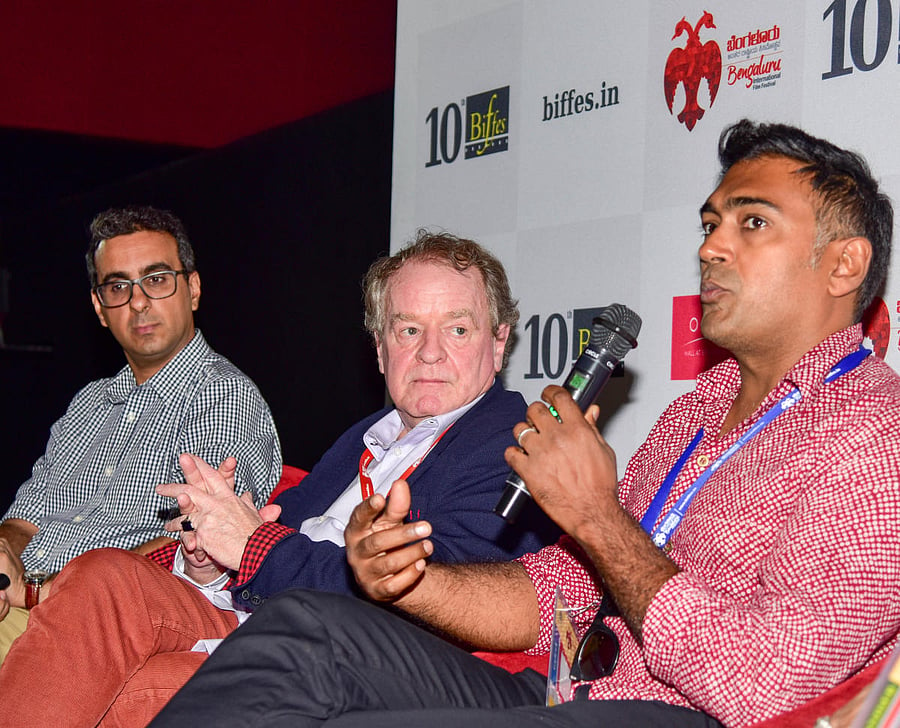
In spite of a thriving, self-sustaining film industry, India does not have the infrastructure to support co-productions, filmmakers discussed at
the international film festival.
"Your country is so big. We need someone to tell us where to find the richest culture, someone to see our script and tell us which is the best place to shoot," said Marc Baschet, who has co-produced films like 'The Lunchbox' and Emraan Hashmi's 'Tigers'.
The primary hurdle to co-productions in India is the lack of a single government body such as an 'Indian Film Board' or 'Indian Film Commission' said Rahul Puri, managing director of Mukta Arts, a media and entertainment company.
"If a German producer comes to India and wants to co-produce, there is no single body to help by connecting them to the right people. It only happens on a one-on-one basis. Most other countries, even Fiji, have such commissions to put you in touch with people," Puri said. Baschet added that the Indian government is not sensitive enough when it comes to providing visas to film crews from outside the country. "If I get someone on a tourist visa, I cannot get them insurance. On the other hand, business visas are expensive and they are very difficult to get. Because of these problems, many of my French producer friends don't come here," he said. In spite of these challenges, Baschet likes to work with the Indian film industry because it is a good way to find new talent.
Canadian film producer Anand Ramayya said that co-production allows producers to push boundaries and do something new and exciting. Ramayya said that though the India-Canada co-production treaty was signed in 2014, not a single movie has come out of it so far. "One of the reasons for this is that there is no specific body to certify the co-production. In Canada, we have Telefilm Canada which gives a stamp to certify the co-production but there is no counterpart in India," he said.
The government needs to recognise the soft power that movies wield and make it their priority to fix such issues, Puri said.
